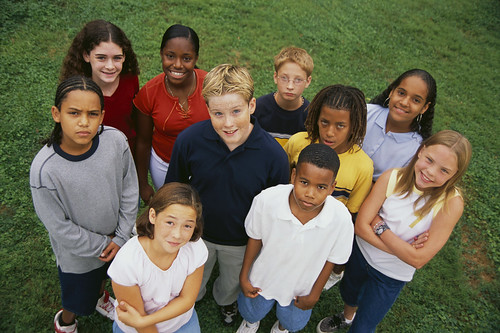School counselors aim to help students reach personal and academic success. This is an enormous challenge, as it involves working on issues that affect the student body as a whole while still taking time to address individual students’ needs. What are some of the issues that counselors can expect to face as students head back to school in 2015?
Cultural Differences

Image via Flickr by helpingting
As U.S. Ambassador to China Gary Locke said in 2012, “Ethnic diversity adds richness to a society.” This statement may hold true, but students’ cultural backgrounds may impact how they view education. Differences in income between ethnic groups may also affect student performance. Furthermore, language may be a barrier for students who spent the first part of their lives in another country.
The specific cultural makeup of schools varies from place to place, but it is rare to find a school where all the students belong to the same race. The American School Counselor’s Association Counselor of the Year Corey Notestine worked in both rural and urban environments with Caucasian and Hispanic students and stated, “I’ve also come to understand that these two cultures are different, and I’ve grown personally and professionally as I’ve worked on behalf of the students and their families.” Both experienced and aspiring school counselorsmay benefit from imitating Notestine’s positive attitude toward cultural diversity.
Setting Students Up for Success in College
A recent report from Complete College America published by the New York Times indicates that “at most public universities, only 19 percent of full-time students earn a bachelor’s degree in four years.” As the report explains, less than 10 percent of public four-year colleges around the nation graduate the majority of their full-time students in four years. These numbers prevail despite positive changes in the rate of high school graduations across the country.
Counselors help students choose academic courses that cater to their interests, talents, and college prospects. Counselors also familiarize students with potential scholarship opportunities. However, counselors may be able to do more while students are still in high school to encourage them not only to start, but also to finish, a college education.
Personal Problems
It’s impossible to list all the personal crises that high school students may face during this critical period of their lives, and students may hesitate to reach out for help with these problems. Still, counselors can examine statistics, pay attention to what happens within the student body, and take action to care for students’ emotional health.
One issue that touches many schools is bullying. Pacer’s National Bullying Prevention Center lists some troubling statistics regarding bullying. About one in four students reports being bullied, and victims of bullying are more likely to face health problems like headaches and stomach-aches. Counselors can work to establish programs that promote tolerance and acceptance within schools. They can also communicate with parents to foster an environment of teamwork among students, educators, and parents.
Each student and each student body has unique needs that depend on factors like economic circumstances, geographic region, and cultural background. By being aware of potential issues and working to address them, school counselors can help students to achieve personal and academic success in 2015.
